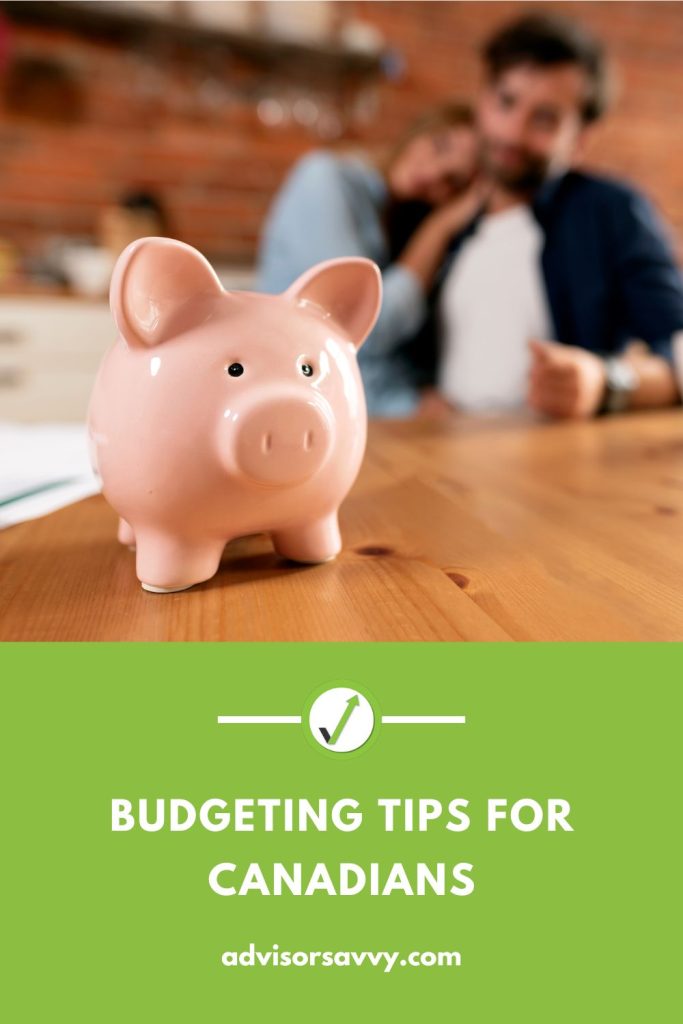
There are few things worse than having bills come due without money in the bank to cover them. If you’re budgeting properly, that should never happen. But, for far too many of us, it is our reality more often than we would like to admit. That’s why we have put together a list of budgeting tips for Canadians to help reduce the stress of worrying about whether you have the cash to cover your expenses.

Table of contents
Failing to budget is a trap many fall into, but can be avoided, if effective budgeting tips are followed. Budgeting is the key to solving the problem of the Great Disappearing Bank Balance.
What is budgeting?
At its core, budgeting is the creation of a financial plan. But it’s more than just a plan. It is about looking at your overall income, your fixed expenses and your variable expenses. Then, create a way to ensure you have enough money to live while saving for a rainy day and the future.
Why is budgeting important?
Having and maintaining good credit is vital for qualifying for loans and mortgages. To get good credit, you need to use, maintain and pay off debt. In other words, you need to buy stuff.
It might seem a bit backwards but yes, you need to spend to get credit and you need money to give you buying power. How do you do that? By budgeting – making sure you aren’t spending that which you don’t have.
If you budget properly, money should always be available to pay bills. Quality budgeting will have you covered, even if an unexpected, significant expense pops up.
Emergency fund
This is one of the most important budgeting tips for Canadians. A very valuable way to avoid racking up debt and blowing your budget is to ensure you have a solid emergency fund. Your emergency fund should have money going in regularly to make sure you have a buffer should something happen. Even a well-managed budget can take a serious hit if you have unexpected expenses. You could be one car accident, roof repair or medical expense away from your budget going off the rails.
Ensuring your emergency fund is well padded at all times will ensure your budget can absorb a bill payment you did not expect. A complete budget must include an emergency fund.
How do I create and live on a budget?
There are many different ways to master a budget, depending on how much help you want or need. There are a host of budgeting tools, tips and resources you can use to plan your budget.
DIY
You don’t necessarily need to hire someone to help you budget, especially if you have good self-control. There are lots of online budgeting tools and free budgeting apps you can download that can help guide you to set up an allotment of your expenses and income. Some of the more popular budgeting apps are Mint, GoodBudget, and Debt Manager and Tracker. These tools are great visuals for you to see where your money is going and how it’s being used. By tracking expenses, you’ll be able to better manage and distribute them to make sure you’re saving money and paying debts, while still be able to eat.
Financial advisor
A financial advisor is there to give advice on how to manage your money. They are well versed in the market and give advice on what savings, investment and insurance tools will fit into your budget. They are a great source of educated advice on overall financial strategy.
The primary role of a financial advisor is to make sure your money is set up in a secure way that is best designed to successfully meet your own specific goals.
Financial coach
Unlike most other financial planning professionals, a financial coach also referred to as a money coach, is an expert at encouraging good financial habits.
A financial coach isn’t interested in selling financial products. Their interest lies in working with clients through the process of setting up a financial plan and helping them adhere to it. A financial coach will work with clients to improve their relationship with money through guidance and educated support.
What are the best budgeting tips for beginners?
Building a budget isn’t nearly as daunting as it sounds. Once you have a clear view of your finances, it’s much easier to manage them. Here are some great budgeting tips.
Know what you’re spending
You can’t budget if you don’t know where your money is going. So many of us blindly pay for things by credit card and throw money on it every month. That’s the best way to get in over your head and spend money you don’t have. Track what you’re spending and review your bank accounts and credit card statements, regularly.
List your spending and income
Look over your paycheque and the bills you’ve paid, and the receipts for all of your purchases and put them in a spreadsheet. The final tally of income versus money out will show you if you’re in the black or the red. If you’re swimming in the red, it’s time to look at what you can reasonably cut to get back in the black.
Create a balanced budget
Once you’ve written it all out and can see where you’re overspending, you’ll be able to sit down and create a budget that makes sense for you. That might well mean cutting back on lifestyle choices that have become habits; fewer restaurant dinners or vacations, for example. Laying out wants and needs and budgeting accordingly will help keep your finances flowing in a healthy way.
The 50 / 20 / 30 rule
This method of savings was popularized in the United States but is absolutely applicable here in Canada.
Breaking up your expenses into wants, needs and savings is the best way to layout where your money should go. Fifty percent of each pay cheque should be able to go to needs. Needs include groceries, housing and utilities. We’d also consider your vehicle under the needs category because you have to be able to go buy the groceries and get to work!
Only 30 percent of your pay should go to your wants. Wants include most everything else, like entertainment, shopping and any hobbies you might have.
Savings are vital to budgeting. All of the budgeting in the world won’t matter if you don’t have money set aside for a rainy day. Twenty percent of your paycheque should go to savings, both accessible and long-term for retirement.
Try this! Savings Calculator
Budgeting tips to save money
Far too often, we find ourselves in debt wondering how we got there. We call this the Death by a Million Paper Cuts type of debt. You never spent $10,000 on a killer vacation, so where did it all go? Do regularly buy lunch at work, lattes in the afternoon, and maybe smoke cigarettes? Those seemingly small expenses add up to a lot of money.
That’s why a budget is so important. When you realize you’re spending $300 a month on Uber Eats and Netflix, and almost as much on coffee, you’ll start to see obvious places you can cut. So, packing your lunch, quitting smoking and making coffee at home are obvious remedies to those expenses. But there are a lot more that you might not have thought of. Here are some budgeting tips to help you save money.
Shut off the lights
Make sure your lights are off to reduce your electricity bill and if you hear your toilet running, get it fixed – you’re literally throwing money down the toilet.
Shop around
Never take the first offer for big-ticket expenses like vehicles and insurance rates. Insurance rates will be vastly different from one place to the next and what one dealership might not be willing to negotiate on, another will to make the sale.
Find your local buy and sell groups
Take advantage of buy and sell groups, especially if you have a young family but even for everyday electronics. You will be able to get expensive items for unbelievably affordable prices.
Cut unused services
Got a gym membership but never go? It might be time to quit. The same is true for any other subscription services you might not use, like magazines or even meal planning kits you don’t really need.
Do what is in your means, outsource the rest
Do what you can, on your own. Obviously don’t try to fix the electricity issues in your house. But, unless you have a broken arm, you can probably paint that room that needs to be done.
Price match
So many grocery stores allow you to price match. Our grocery bills are already high, and restaurants cost way more. Reducing the grocery bill is easy if you take a few minutes to shop around and compare prices. Thankfully, there are apps like Flipp out there that make it quick and simple to price match.
Forget the Joneses
Give up on keeping up with the Joneses. It’s amazing they took the family to Bermuda. But either they saved up, make a good income, or they went into debt to take that trip. You don’t know and they might not be the best budgeters to emulate.
Budgeting is one of those things where, once you’ve done it, you’ll wonder why you waited so long. Simply follow these budgeting tips and create a guide on how you can spend your money so that you can live your life, and still be protected in the future.
Read More: How to Invest $1,000, $10,000 or $100,000
